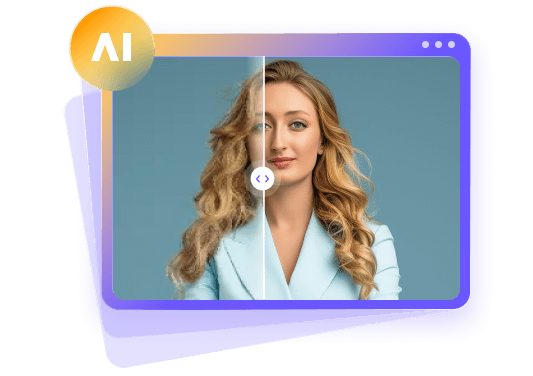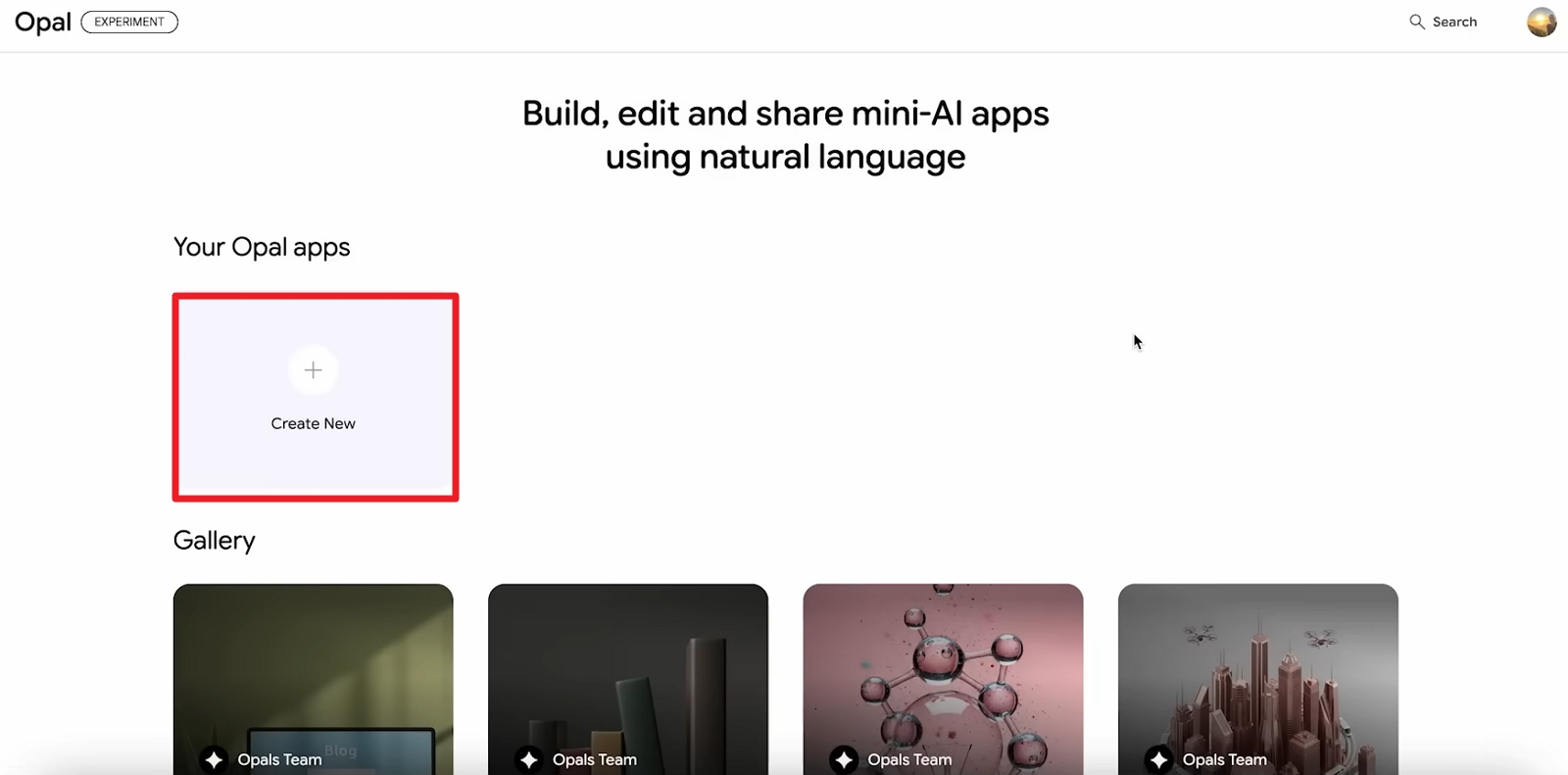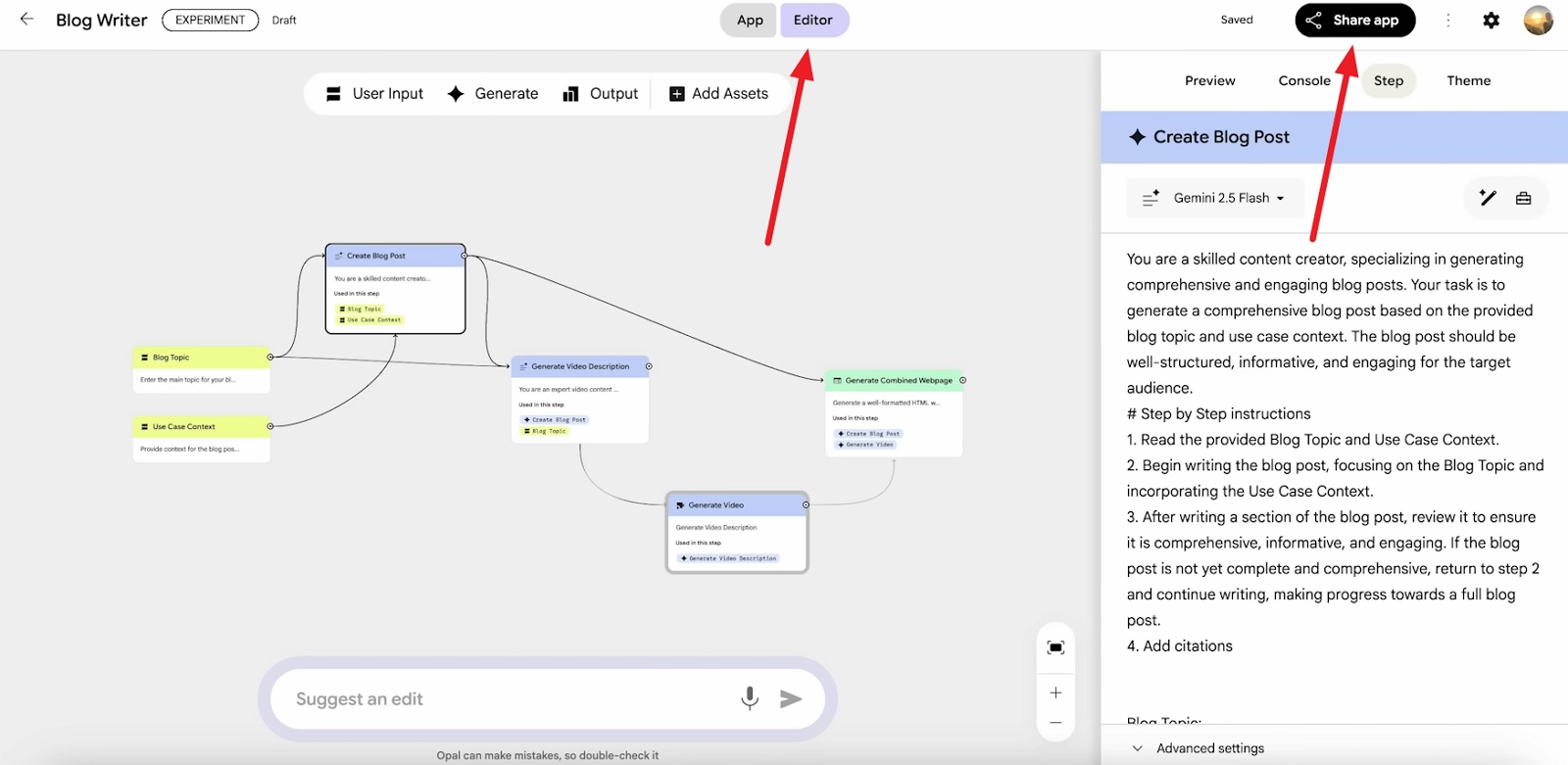Google Opal Guide: Build AI Mini‑Apps With Natural Language Prompts
The creation of smart tools or apps used to require learning complex coding languages and spending hours writing instructions. For many people, this made creating simple AI apps feel impossible. Yet, things are changing! Google has introduced a new tool called Google Opal, letting anyone create mini apps powered by AI. The best thing is that it can be done without writing a single line of code.
From a teacher and small business owner to just someone with a creative idea, this platform makes it easy to bring that idea to life. This deep dive will explore what Google Opal is and how it works in great detail. Stick till the end to master why it is so helpful.
Part 1. What Is Google Opal and How Does It Work?
Creating useful AI tools sounds difficult, but Google Opal makes it simple for everyone, even those with no tech skills. It's a free tool from Google Labs that helps people make small apps using plain language, not code. You just describe what you want the app to do, and Opal turns your words into a working step-by-step app using AI. There are two easy ways to build with Opal, which are focused below:
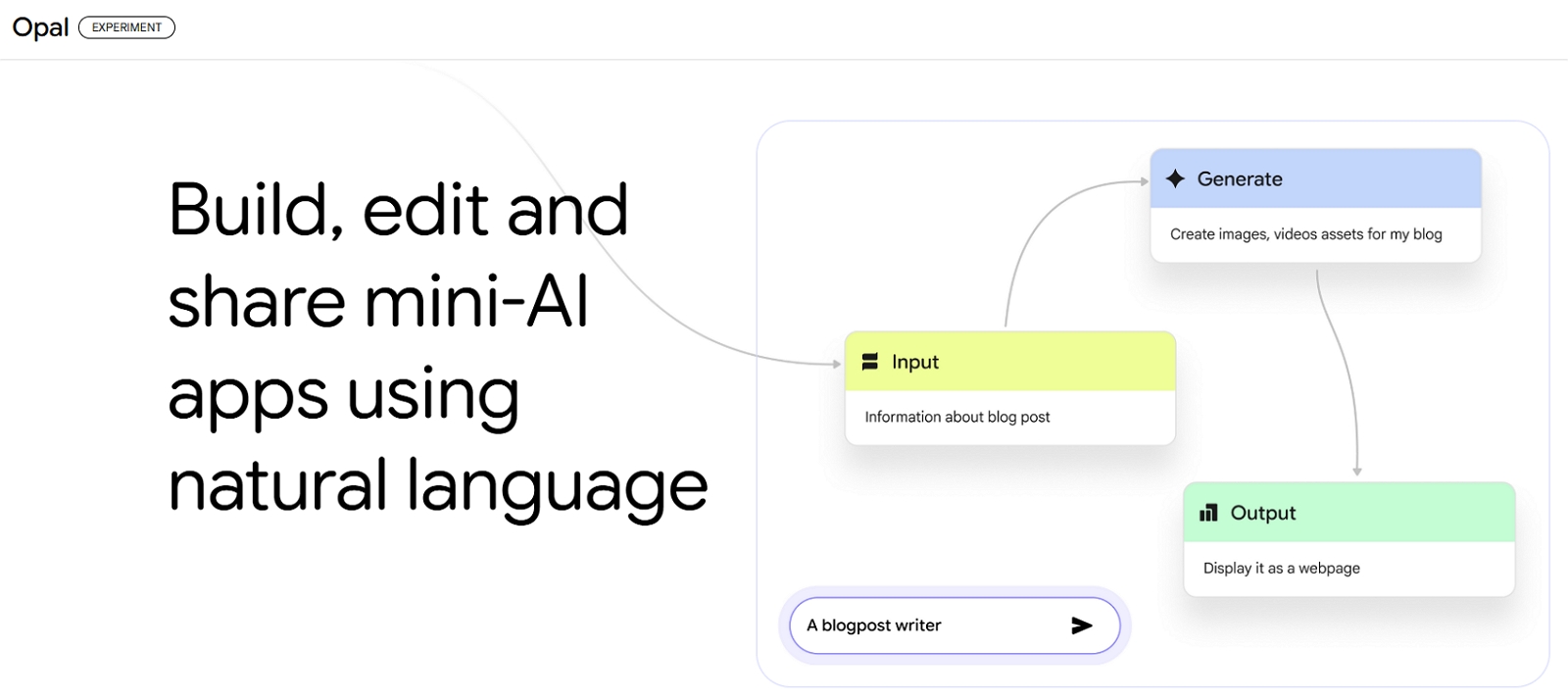
- 1. Conversational Mode:You simply type in instructions like "I want an app that answers customer questions." The tool builds everything according to the command and updates it for you.
- 2. Visual Mode:It is where you can see and move different parts of the app on the screen by dragging and dropping. This act of building AI apps is kind of like putting together a puzzle.
Opal also gives you ready-made templates to help you get started faster. When the app is ready, sharing it with anyone you want is viable using just a link via a Google account. So instead of writing code, you're just explaining your idea in plain English, and Opal does the rest.
Part 2. Who Should Use Google Opal and What Is Its Value?
Not everyone can code, but many people have ideas that could be turned into smart tools. That's exactly what Google Opal helps with, as it is built for people who want to create useful mini apps but don't know programming.
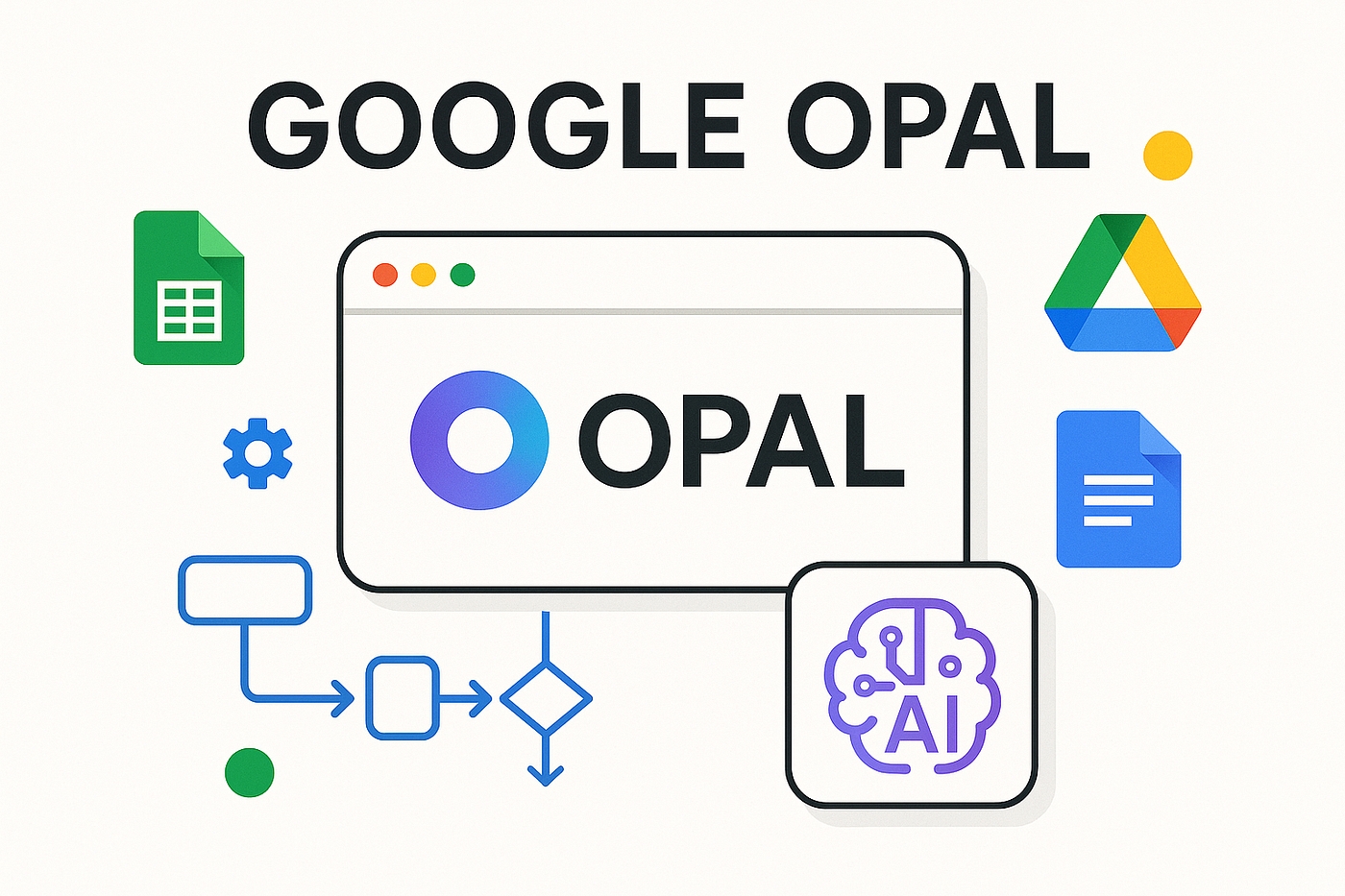
Why Use Google Opal?
- 1. No Coding Needed:Just describe your idea in plain English
- 2. Quick to Build: Create and test AI-powered apps in minutes
- 3. Zero Installation:Works fully online in your browser
- 4. No Cost: Free to use in public beta (U.S. only for now)
- 5. Easy to Share:Finished apps can be sent via a simple link
Perfect For (Defining Roles)
| Role | Use Case Example |
|---|---|
| Content Creators | Auto-generate social media posts |
| Educators | Build AI tools for quizzes or student help |
| Customer Support | Set up mini-apps that answer common questions |
| Entrepreneurs | Test new product ideas using AI workflows |
Part 3. How to Get Started With Google Opal: Building Your First Mini‑App
With a much better idea of what Google Opal is and who it's built for, it is time to try it out for yourself. The procedure is simple, and you don't need to install anything or learn complicated tools. From building something from scratch to starting with a ready-made example, below are the steps to help you create your very first AI mini-app:
Step 1.Get to the opal.withgoogle.com site and sign in using your Google account via a browser. Following that, tap "Create New" and describe on the following screen what app you want to build.

Step 2.When the AI app is created, you can name it and hit "Start" to try using it. Here, you can try "Editor" to view and edit the app workflow and "Share" to share the app with the desired people.

Part 4. What Are the Limitations and Risks of Google Opal?
Even though Google Opal is a great tool for trying out ideas quickly, it does come with some caveats. That is especially for people planning to use it in serious business settings. Hence, it is vital to know these points so you can decide if it is the right fit.
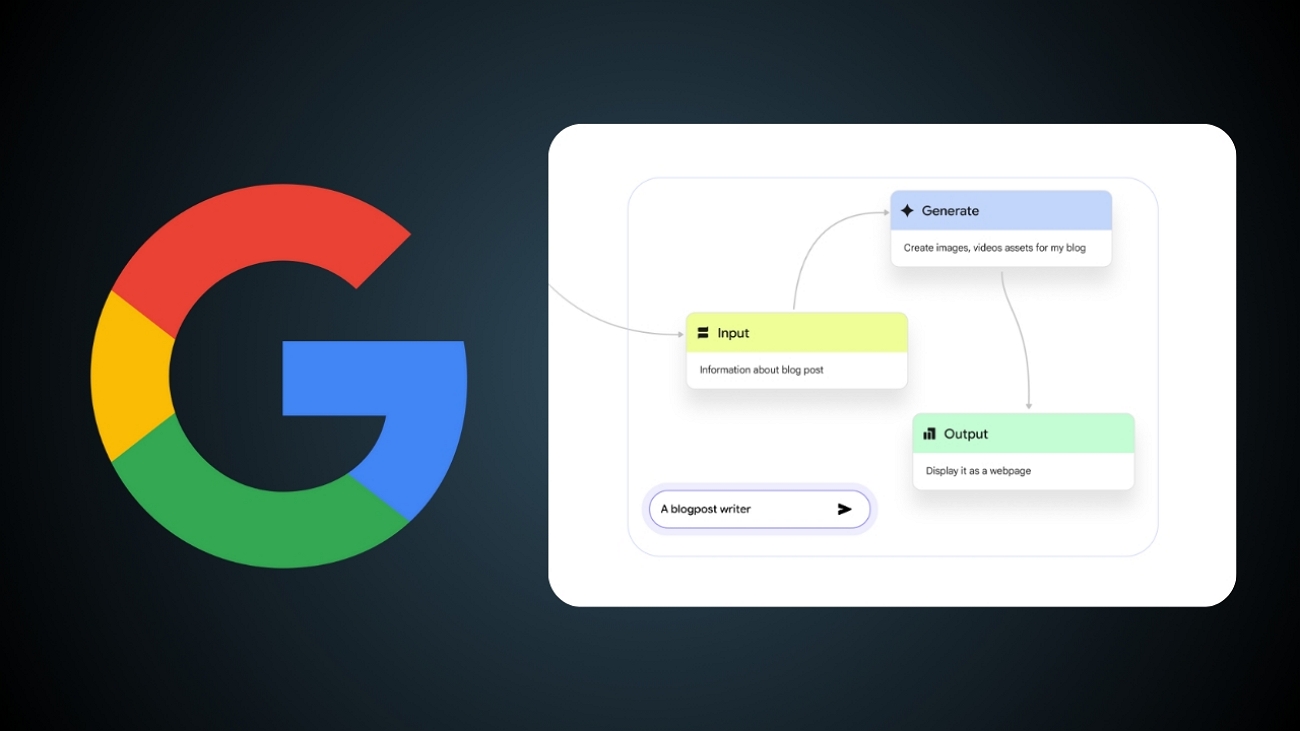
What Are the Main Limitations?
- 1. Not Built for Large-Scale Use:Google Opal is still an experimental tool and doesn't offer advanced support or guarantees for long-term use like professional software platforms do.
- 2. Better for Testing:This program is best suited for creating quick demos or internal apps, not applications with large user bases.
- 3. Limited Growth:As the app gains more users or requires added functions, Opal may struggle to keep up.
What Are the Security Risks?
- 1. Lack of Control:Since people outside IT teams can build and share apps, it may create security risks. For example, apps get shared with the wrong people, or sensitive data could be exposed.
- 2. No Strong Access Tools:The lack of detailed access settings and audit logs makes it difficult to track user activity or prevent unwanted access.
- 3. Locked into Google's System:Apps made with Opal stay inside Google's platform, and you cannot export the source code or move the app to another tool.
Part 5. Comparing Google Opal with Other Vibe‑Coding Platforms
Many tools now let people build apps without coding, but each one works a little differently. To understand where Google Opal fits, let's compare it with other popular platforms like Microsoft Power Apps, Replit, etc.
| Feature | Google Opal | Microsoft Power Apps | Replit | Bubble | Adalo |
|---|---|---|---|---|---|
| Main Purpose | Build mini AI apps using plain English prompts and visual blocks | Create business apps connected to Microsoft 365 and databases. | A web coding environment to write and run real code. | Build full web apps without code. | Create simple apps using a visual drag-and-drop interface |
| Target Users | Normal creators: educators, marketers, | Business professionals and enterprises | Developers or tech-savvy users | Users want powerful web apps. | Beginners making mobile/web apps quickly |
| Coding Required? | No. Uses plain language and visual workflow | Low-code. some formula-like setup | Yes. Write real code | No. logic and database setup via UI | No. drag-and-drop screens and logic |
| AI Features | Native AI models like Gemini and Imagen | Basic AI support via Microsoft Copilot and integrations | Not AI-first; code libraries needed | Some plugins or external integrations | Limited AI |
| Learning Curve | Very shallow | Moderate | Steeper | Moderate to high | Low |
| Sharing | Share via link; Google account login needed | Integrated deployment across the enterprise | Share via code deployment or embed | Publish web apps directly | Publish apps to the App Store, web, or share via link. |
Part 6. Skip Google Opal Build- Create Stunning Images Instantly with HitPaw FotorPea
When not looking to build an app but still want amazing visuals fast, an excellent alternative exists. HitPaw FotorPea (formerly HitPaw Photo Enhancer) makes creating beautiful AI images effortless. With just a simple text prompt or uploaded photo, it uses smart AI models to generate vivid visuals in seconds. It's packed with advanced functions: turn text into art, unblur or upscale images, remove or change backgrounds, and even make portraits in different styles.
Features
- 1.Uses AI Face Model to enhance facial detail to remove blemishes and balance skin tones.
- 2.Upscales pics to 8K resolution without losing quality or sharpness in the process.
- 3.Reduces noise and grain in blurred or compressed photos using robust AI models.
- 4.Removes scratches and photo damage using AI repair for restored image clarity.
- 5.Deletes unwanted objects or stickers from pictures cleanly using a powerful AI eraser.
Guide to Create an Image With HitPaw FotorPea
Utilize the following detailed steps to generate the desired pictures in a matter of seconds:
Step 1. Launch the Program and Access the AI Generation Feature
Get the latest iteration of HitPaw FotorPea up and running on your system to access the "AI Generator" section. Depending on your needs, choose the "Text to Image" or "Image to Image" option to proceed.
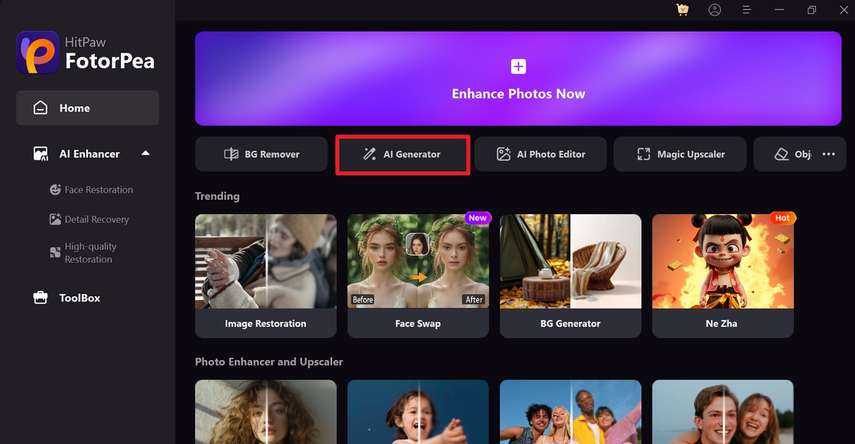
Step 2. Provide The Targeted Prompt and Adjust Preferences for the Resulting Picture
Then, enter a detailed prompt or upload a relevant photo to continue with the operation. Moving forward, opt for the "Model" you prefer and set the "General Settings" to fit your requirements.
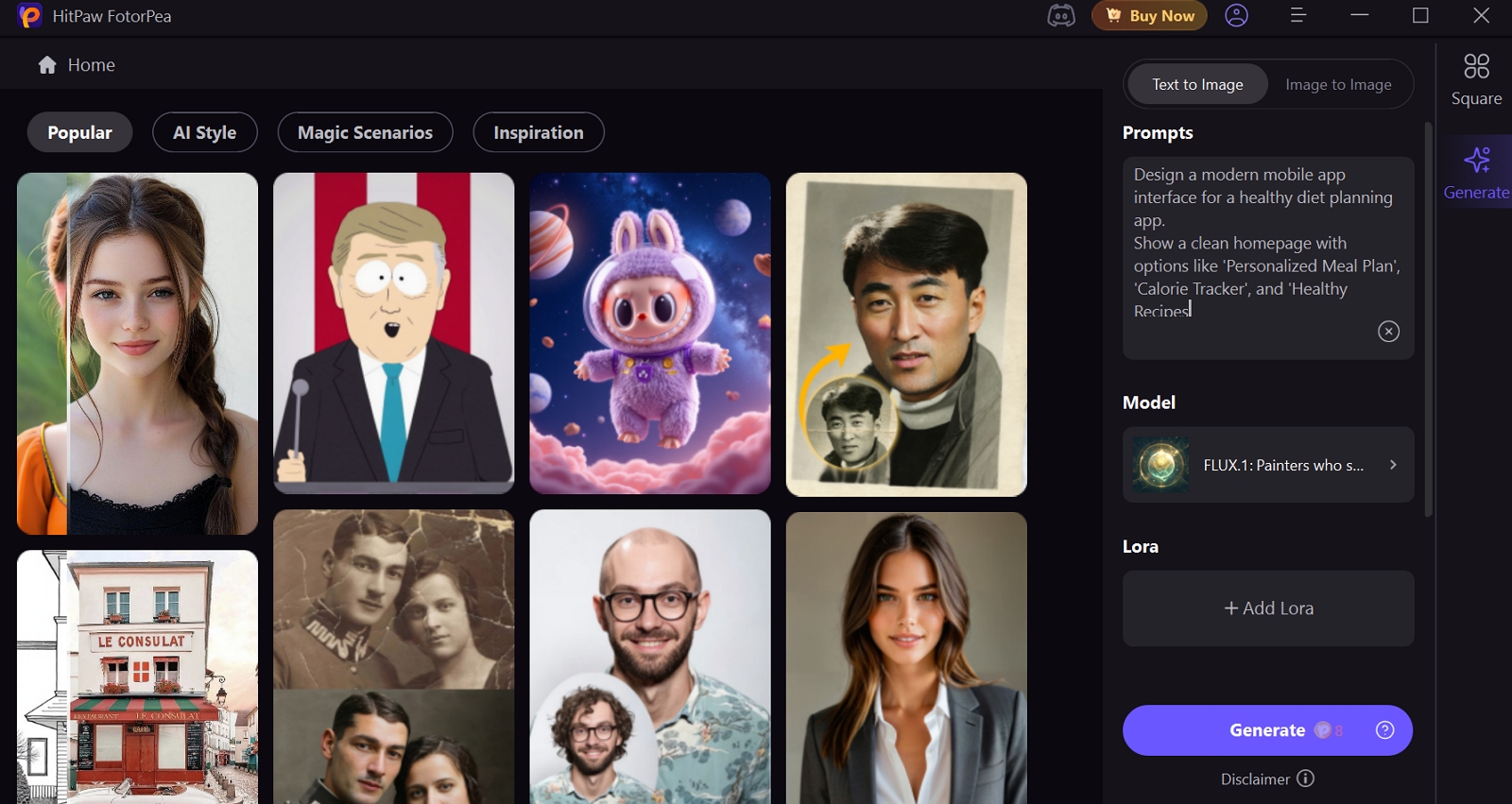
Step 3. Customize Advanced Settings and Generate the Results for the Prompt
Here, open the "Advanced Settings" to tweak parameters such as "Sample Steps" and "Seed" to press the "Generate" button. After performing required edits on the resulting photos, use "Download" to store them on the system.
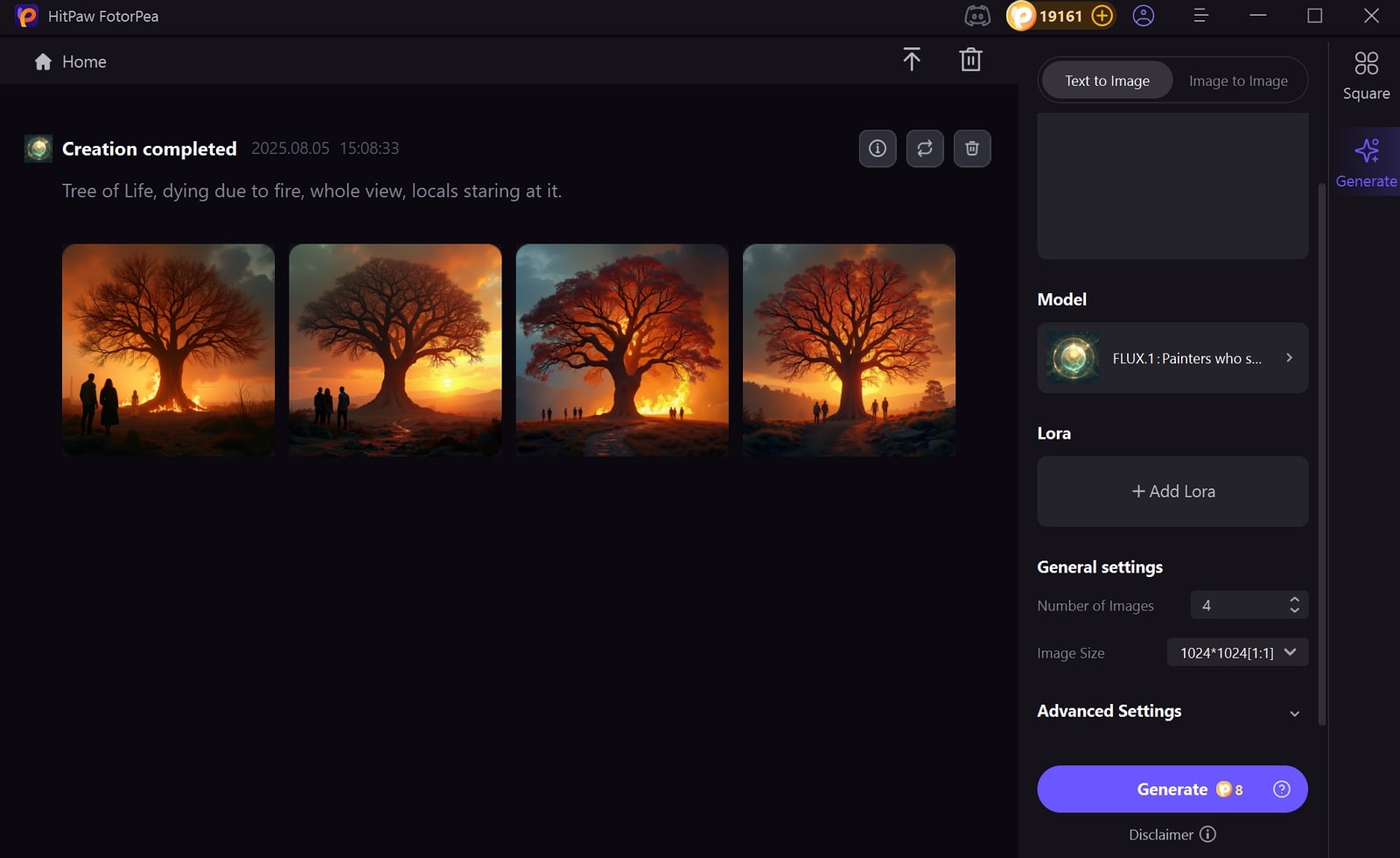
Conclusion
In summary, Google Opal opens the door for anyone to create AI mini-apps without coding. While it's great for quick builds, tools like HitPaw FotorPea offer powerful AI image features for visual creators. From testing ideas to crafting visuals, these platforms make complex tasks simple. The future of creation is truly no-code, without needing a tech background.
Leave a Comment
Create your review for HitPaw articles


